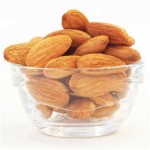Podcast 42: Will Immunity-Boosting Foods, Supplements and Super-dosing prevent COVID-19?
As we move through the rollercoaster ride of what’s been the last year and take
With a new baby in your life, there is now a new schedule to work around. The physical demands of recovering from labour and delivery as  well as adapting to the new day-to-day routines can take a toll on a woman’s body. It is therefore critically important to continue with your healthy eating lifestyle post-natally to not only help keep your energy up, but also, if you are able to breastfeed your baby, be able to give them the best nutrition to promote development. Women may find that they don’t necessarily have the time to sit down and enjoy 3 meals a day, so it is recommended to include small meals throughout your day, about every 2-3 hours, choosing foods that are easy to grab, easy to prepare and readily available. Cheese and crackers, fruit and nuts, trail mixes, hardboiled eggs, hummus with vegetables, a bowl of cereal or oatmeal (choosing whole grains as often as possible to promote regularity) are just a few examples that can give your body essential nutrients it needs while keeping you attentive and alert. Including some form of protein (from Milk and Alternatives or Meat and Alternatives) with each small meal or snack will help keep you fuller for a longer period of time as well. It is best to avoid foods that are high in sugar, which provide little to no nutrition and often make us “crash” soon after having them.
well as adapting to the new day-to-day routines can take a toll on a woman’s body. It is therefore critically important to continue with your healthy eating lifestyle post-natally to not only help keep your energy up, but also, if you are able to breastfeed your baby, be able to give them the best nutrition to promote development. Women may find that they don’t necessarily have the time to sit down and enjoy 3 meals a day, so it is recommended to include small meals throughout your day, about every 2-3 hours, choosing foods that are easy to grab, easy to prepare and readily available. Cheese and crackers, fruit and nuts, trail mixes, hardboiled eggs, hummus with vegetables, a bowl of cereal or oatmeal (choosing whole grains as often as possible to promote regularity) are just a few examples that can give your body essential nutrients it needs while keeping you attentive and alert. Including some form of protein (from Milk and Alternatives or Meat and Alternatives) with each small meal or snack will help keep you fuller for a longer period of time as well. It is best to avoid foods that are high in sugar, which provide little to no nutrition and often make us “crash” soon after having them.
Choosing healthy nutrition during the postnatal period will not only help keep your energy up, but also help in the production of breast milk. If you are breastfeeding your baby, you will need extra nutrients, vitamins and minerals. You will acquire most from the extra food items you choose, as well as a multi-vitamin which is often suggested. Calcium: Research indicates* that breastfeeding women do lose some bone  mass, however, this is recovered later. It is therefore important to include dairy items throughout your day. If your calcium intake is low or limited, consider a supplement, checking with your healthcare provider what amount you need. Calcium also helps our bodies absorb Vitamin D. Omega-3: A key component which is passed along to your new baby to help in their brain and eye development, especially docosahexanoic acid (DHA), found in animal sources of omega-3. As mentioned in the second part of this series, including fish twice a week (salmon, mackerel, herring) is a great place to start. Vitamin D: It is recommended for all Canadians to supplement their diet with Vitamin D, since there are few food items with substantial amounts of D in them. This is increasingly important during the winter months when our bodies are not able to make as much D from sunlight. Supplementing your diet with Vitamin D will help you maintain strong bones and prevent some autoimmune disorders*.
mass, however, this is recovered later. It is therefore important to include dairy items throughout your day. If your calcium intake is low or limited, consider a supplement, checking with your healthcare provider what amount you need. Calcium also helps our bodies absorb Vitamin D. Omega-3: A key component which is passed along to your new baby to help in their brain and eye development, especially docosahexanoic acid (DHA), found in animal sources of omega-3. As mentioned in the second part of this series, including fish twice a week (salmon, mackerel, herring) is a great place to start. Vitamin D: It is recommended for all Canadians to supplement their diet with Vitamin D, since there are few food items with substantial amounts of D in them. This is increasingly important during the winter months when our bodies are not able to make as much D from sunlight. Supplementing your diet with Vitamin D will help you maintain strong bones and prevent some autoimmune disorders*.
It is estimated that your body requires approximately 640 calories to metabolically produce breast milk for an exclusively breastfed infant*. Of this amount, about 500 calories should come from extra food you eat, allowing the remaining calories to help in a healthy weight loss. The World Health Organization highlights the act of breastfeeding as an “opportunity to provide optimal nutrition, immunological and emotional nurturing for the growth and development of your infant”. Some women may have difficulties in the beginning with their baby latching on, in which circumstance there are lactation consultants available for those who truly want to pursue breast feeding. A mother may also feel that she is not making enough breast milk. It may be best to discuss this with a lactation consultant or dietitian, as there are some foods and eating patterns that may help in this situation. The nutrition you are able to provide your baby with through breast feeding is the best food to help your baby grow and develop. It is recommended to exclusively breastfeed your baby until 4 to 6 months of age, depending on how well your baby is eating and growing. Most individuals exclusively breast feed until 6 months, however there are some individual situations that indicate the slow introduction of some solid foods at 4 months. This is an area to thoroughly discuss with your baby’s doctor before starting. As your baby continues to grow and develop, the nutrition he or she will receive from your breast milk will change based on their growth and development. It is important to include a daily Vitamin D supplementation to prevent against Vitamin D deficiency, as this is an important Vitamin your baby will not receive adequate amounts of through breast milk. The first milk you produce is called colostrum which is very concentrated in vitamins, protein and immune factors to help protect your baby. Babies often want to feed often in the beginning because their stomach is very small and can only hold small amounts at one given time. This is normal as breast milk is digested rather quickly. Feeding often also helps to increase your milk supply. A good way to judge whether your baby is getting enough is to monitor their weight, which is always closely monitored in the early stages of life.
Whether you are breast feeding or formula feeding your infant, their growth will dictate how well they are absorbing the nutrition throughout their first months of life. Doing what you can to maintain your own health is just as important so that you can keep up with the demands of being a mother. If you feel your child is not gaining weight, digesting properly or eating enough, it is best to speak to a healthcare professional to help guide you in the right direction. The early stages of life for a baby are very important, so monitoring these cues is something to be mindful of. Your baby’s early eating patterns, growth and development will help dictate how and when to begin introducing solids into their diet. This should be discussed with your baby’s healthcare provider, as each infant will express different cues and behaviours. Allergen foods* together with any family history of allergens are very important to be familiar with, to not promote any adverse effects when introducing certain foods. More information is offered through the links below.
Speaking to new moms or your healthcare provider about different strategies that work to maintain your own nutrition and energy is a great place to start if you are finding this to be difficult amongst all other things happening at this time. Making healthy choices during this period will help your baby grow and develop into healthy eating patterns as well!
http://www.niams.nih.gov/Health_Info/Bone/Bone_Health/Pregnancy/default.asp
http://ods.od.nih.gov/factsheets/VitaminD-HealthProfessional/
http://firststepnutrition.com/
http://www.hc-sc.gc.ca/hl-vs/babies-bebes/nutrition/index-eng.php
As we move through the rollercoaster ride of what’s been the last year and take
The uncertainty of COVID-19 has impacted everyone differently, but from a food security perspective, many